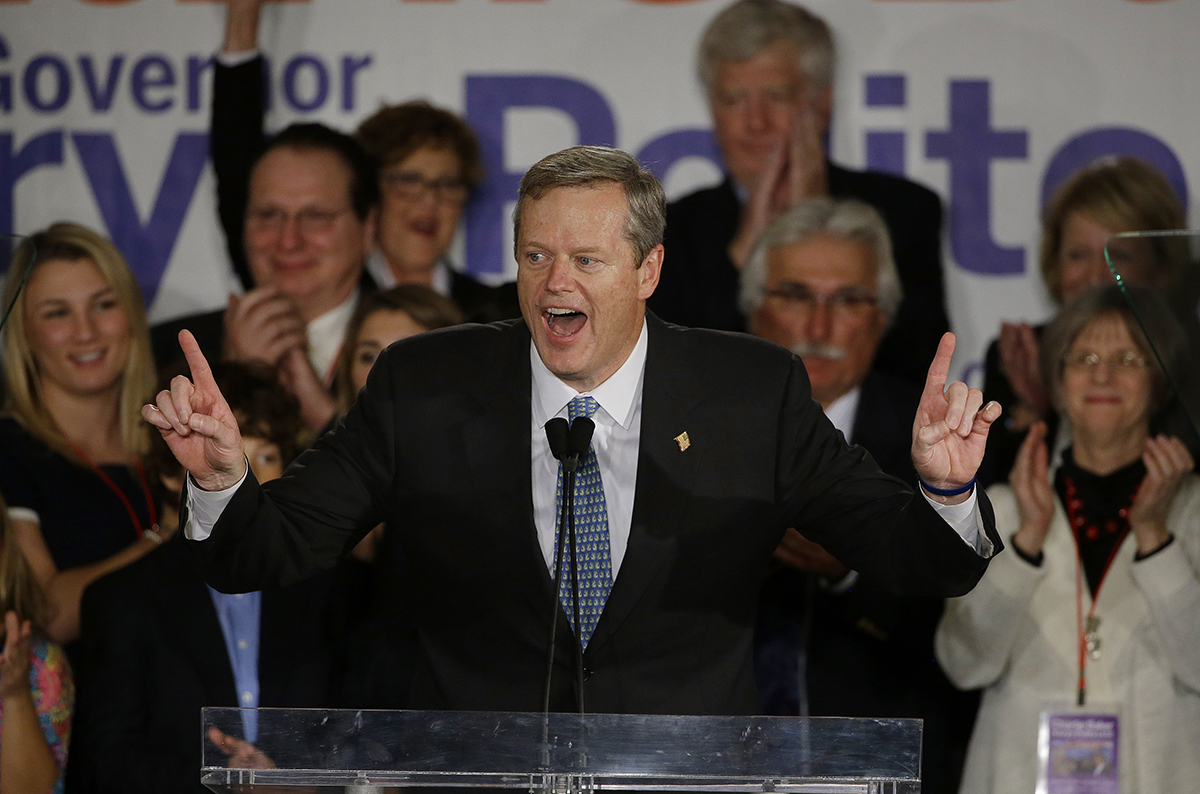Gov. Charlie Baker’s Suddenly Relevant Jobs Reductions

Associated Press
Charlie Baker is a weaselly liar.
In fact, I would go so far as to say that the biggest lesson the governor learned from his unsuccessful 2010 campaign was to be more of a weaselly liar—and politically it was a smart takeaway. He had watched in frustration that year, as Governor Deval Patrick made weaselly lies to avoid saying that he was likely to raise taxes in his second term.
Lying is like dark money in politics: it’s one thing to oppose the practice, it’s another to unilaterally disarm when your opponent has no qualms.
Baker had taken a lot of grief in that earlier campaign for proposing a reduction of the state government’s workforce by 5,000 jobs. He didn’t specify which jobs, or how, although he did say much of it would come through attrition—that is, by not replacing workers as they left.
It was a major platform point then, and was necessary to explain how he would balance the state budget in those tough economic times.
But it made him seem heartless, and unconcerned about the effect on services, and just generally Republican, which he really wanted to avoid in the 2014 campaign.
So, the workforce reduction plan—and in fact any semblance of a serious plan to balance the state budget—were dropped the second time around.
During that campaign, in September 2014, I asked him about it:
DB: Let me ask you this specifically. You called for, four years ago, you said you would eliminate five thousand state jobs, through attrition and so on. Do you still think that it would have been the right thing to do?
CB: I don’t think about it that way, because we’re not there anymore. We’re in a very different place fiscally, and a very different place economically. And by the way, I was running for governor, so any proposal that I would have made with respect to anything, then or going forward, I would have to sell to the legislature, and make the case for.
I pressed him. I said that the question seemed relevant both in judging his plans for the economy then, and in determining how he might act as governor going forward.
He didn’t want to answer, so he refused to answer. Weasel.
Well, removing 5,000 people from the state payroll went from irrelevant to necessary almost immediately upon Baker taking office. His early-retirement incentive plan, currently pending before the state senate, is intended to get rid of 4,500, but that’s a rough guess out of the 14,500 eligible. There are also plans for job elimination through attrition.
A Baker spokesperson says the 2010 and 2014 plans are not comparable, because the current plan does not include layoffs. But we don’t know that the 2010 plan would have—Baker never answered that question.
The spokesperson, Tim Buckley, also argued in a message that we have “an entirely different economic/fiscal/budget environment” than the Commonwealth faced five years ago. Well, yes: a much, much better one. That’s the exact argument Baker was giving me in that September interview, in the exact opposite direction.
The simple truth is that Baker was always going to need to propose dramatic reductions in the size of state government, given his plans to boost local aid, increase certain services, and collect no new tax revenues. And, it’s no surprise that he wants to do it by dramatically cutting payroll.
It’s not even necessarily a bad plan. That’s a separate question. A question that voters would have been able to weigh in on, if Baker hadn’t been such a weaselly liar about it.


